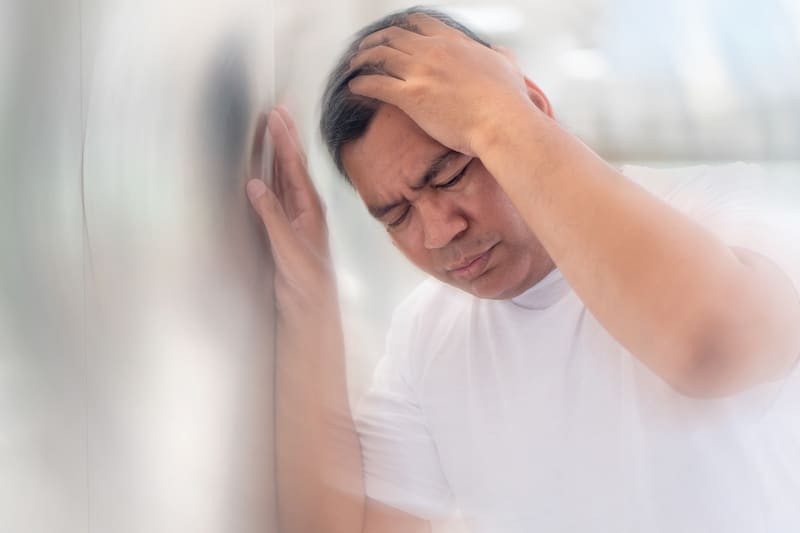Why Do I Feel Dizzy: Understanding the Causes and Finding Relief
Introduction
Dizziness is a sensation that many of us have experienced at some point in our lives. It can range from a mild lightheadedness to a feeling of spinning or imbalance. But what causes this unsettling sensation, and how can we find relief? In this article, we’ll delve into the various factors that contribute to dizziness and explore effective strategies to manage it.
The Inner Ear and Balance
Before we dive into the causes of dizziness, it’s crucial to understand the role of the inner ear in maintaining balance. The inner ear houses the vestibular system, which is responsible for sending signals to the brain about our body’s position in space. When there’s a disruption in this system, it can lead to feelings of dizziness and instability.
Common Causes of Dizziness
3.1 Vertigo
Vertigo is a specific type of dizziness characterized by a spinning sensation. It is often linked to problems in the inner ear or the vestibular nerve. Conditions such as benign paroxysmal positional vertigo (BPPV) or Meniere’s disease can trigger vertigo episodes.
3.2 Low Blood Pressure
Abrupt drops in blood pressure can lead to dizziness. This is especially common when transitioning from lying down to standing up quickly. Conditions like orthostatic hypotension can contribute to this phenomenon.
3.3 Dehydration
Inadequate hydration can disrupt the balance of fluids in your body, affecting blood pressure and electrolyte levels. This imbalance can result in dizziness, particularly when engaging in physical activity.
3.4 Inner Ear Disorders
Various disorders affecting the inner ear, such as vestibular neuritis or labyrinthitis, can lead to bouts of dizziness. These conditions often arise due to viral infections or inflammation.
When to Seek Medical Attention
While occasional dizziness may not be cause for concern, there are instances where seeking medical advice is crucial. If dizziness is accompanied by severe headaches, chest pain, difficulty speaking, or loss of consciousness, immediate medical attention is necessary.
Home Remedies for Dizziness
5.1 Hydration
Ensuring proper hydration is a simple yet effective way to combat dizziness. Aim to drink an adequate amount of water throughout the day to maintain fluid balance in your body.
5.2 Deep Breathing Exercises
Practicing deep breathing techniques can help regulate blood flow and oxygen levels, reducing dizziness. Take slow, deep breaths in through your nose and exhale through your mouth.
5.3 Ginkgo Biloba Supplements
Ginkgo biloba is an herbal supplement known for its potential to improve blood circulation. Some studies suggest it may alleviate symptoms of dizziness, although individual results may vary.
5.4 Ginger Tea
Ginger has natural anti-inflammatory properties and may help alleviate dizziness. Consider drinking ginger tea or chewing on a small piece of fresh ginger when you experience dizziness.
Lifestyle Changes for Managing Dizziness
6.1 Diet and Nutrition
Maintaining a balanced diet rich in essential nutrients is vital for overall health, including inner ear function. Incorporate foods like fruits, vegetables, and lean proteins to support optimal balance.
6.2 Regular Exercise
Engaging in regular physical activity enhances circulation and promotes a healthy vestibular system. Activities like walking, yoga, and tai chi can be particularly beneficial.
6.3 Stress Management Techniques
Stress can exacerbate feelings of dizziness. Practice relaxation techniques such as meditation, deep breathing, or mindfulness to help alleviate stressors.
6.4 Proper Sleep Hygiene
Getting sufficient, quality sleep is essential for overall well-being. Establish a regular sleep schedule and create a calming bedtime routine to promote restful sleep.
Conclusion
Dizziness can be a disconcerting sensation, but with a better understanding of its causes and effective management strategies, you can regain control. By making simple lifestyle adjustments and seeking appropriate medical advice when needed, you can minimize the impact of dizziness on your daily life.
FAQs
- Can stress be a major factor in experiencing dizziness?
- Yes, high stress levels can contribute to feelings of dizziness. Implementing stress-reducing techniques can be beneficial.
- Are there any specific exercises that can help with vertigo-related dizziness?
- Yes, certain vestibular exercises prescribed by healthcare professionals can assist in managing vertigo.
- How long do vertigo episodes typically last?
- The duration of vertigo episodes can vary widely, from a few seconds to several minutes.
- Is it possible for dehydration to cause chronic dizziness?
- Chronic dehydration can lead to persistent dizziness. It’s important to maintain proper hydration levels.
- When should I consult a healthcare professional about my dizziness?
- If you experience severe or recurrent dizziness, especially if accompanied by other concerning symptoms, seek medical attention promptly.
